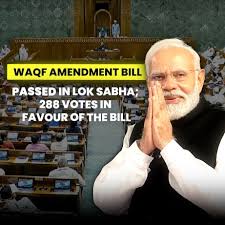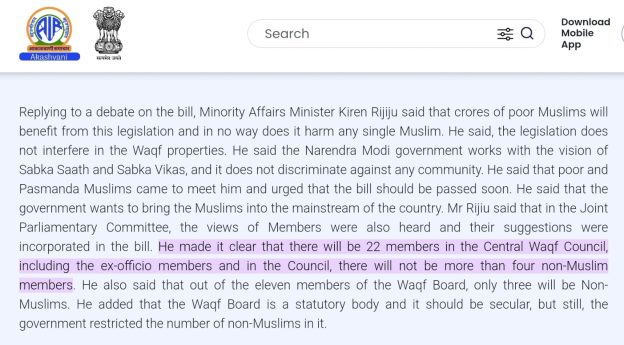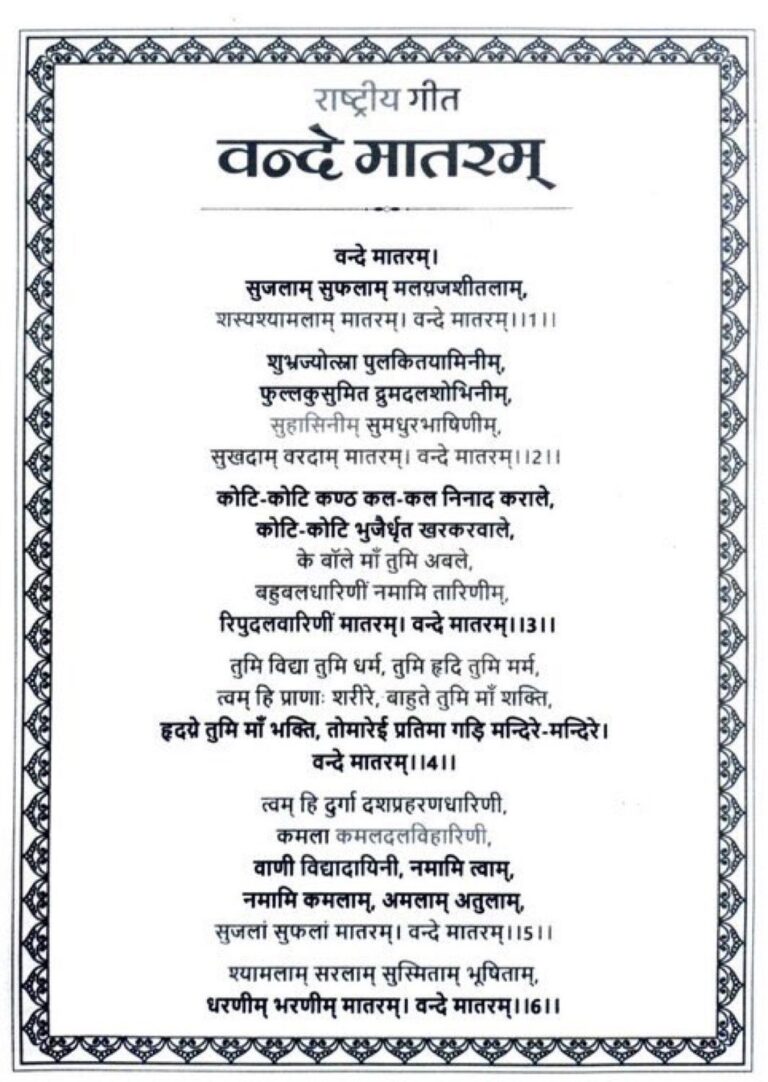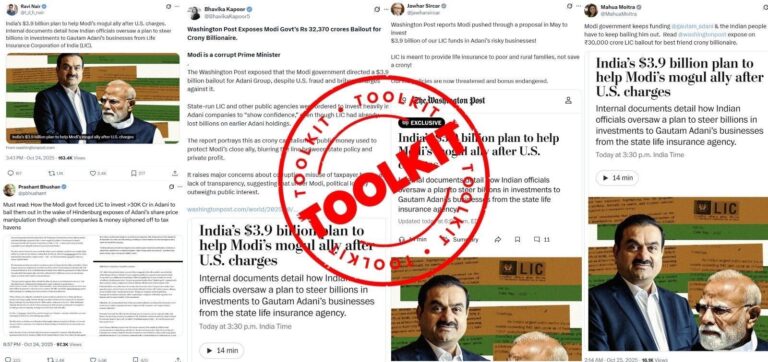
Oh look, the Associated Press is back with another sanctimonious sobfest—this time about India’s Waqf (Amendment) Bill, 2025. The headline alone screams alarm: “India’s parliament set to debate controversial law on Muslim endowments.” But as usual, behind the ominous tone lies a half-baked, selectively reported narrative. Let’s break it down—point by melodramatic point—using some good ol’ facts, data, and a much-needed sense of proportion.
Point 1: Modi’s “Hindu nationalist” government and the ‘controversial’ bill
AP opens with its go-to dramatic villain arc: India’s “Hindu nationalist” government is out to target minorities again! Except… the Waqf bill has been through all democratic procedures—it was introduced in 2024, debated in a Joint Parliamentary Committee, and passed after exhaustive discussions. Nothing secret, nothing shady.
Meanwhile, the 872,000 waqf properties in India, covering 405,000 hectares and estimated to be worth over $14.22 billion, have long been a swamp of corruption, illegal encroachments, and zero accountability. But don’t expect AP to mention any of that—they’re too busy clutching their pearls.
Point 2: Non-Muslims on Waqf Boards? Apocalypse now!
Yes, the bill allows up to four non-Muslim members in a 22-member Central Waqf Council, including ex-officio members. That’s not an invasion—it’s inclusion. It’s a move toward transparency and diverse representation, not a hostile takeover.

Let’s not forget: Several Hindu trusts across India already have had Muslim trustees. For instance, the Baidyanath Temple Trust has had Muslim trustees for two consecutive terms. No one cried foul. In fact, it’s celebrated as a symbol of India’s pluralism.
This isn’t about religion—it’s about governance. And a system managing assets worth over ₹1.2 lakh crore needs more than opaque, insular oversight.
Point 3: Government validation = land grab? Please.
The bill mandates that Waqf boards must get district collector approval for land claims. That’s it. Just like any other property claim in India. Yet AP spins it like this is a land heist disguised as legislation.
Reality check: As of 2024, 5,973 government properties have been declared waqf, sparking legal chaos. Nearly 59,000 waqf properties are under encroachment, and 50% have no verified ownership details. The government’s only crime here is trying to apply rule of law to what’s currently a free-for-all.
Point 4: “Fears” about mosque confiscation
AP says “critics fear” that historic mosques could be confiscated. Facts? Zero. Evidence? Nada. The bill doesn’t touch religious usage—it focuses on verifying ownership and curbing fraudulent waqf declarations. If you fear that, maybe you’ve got something to hide.
Meanwhile, if the government truly wanted to “grab land,” it could start with the 435,000 waqf properties that are completely undocumented. But nope, this bill is just about audits, not bulldozers.
Point 5: $14.22 billion in waqf wealth—shocking? Or neglected?
AP throws around this figure like it’s proof of victimhood. Let’s do some math: that’s about ₹12 lakh per property, most of which are tiny parcels or graveyards. And many are illegally occupied, crumbling, or completely unutilized.
Instead of managing this massive wealth for community upliftment—education, healthcare, welfare—most waqf boards can’t even maintain records. The bill attempts to plug these gaps. AP would rather you believe it’s a conspiracy.
Point 6: “Many Muslims agree there’s corruption… but also fear…”
Ah yes, the classic “we admit it’s broken, but don’t fix it” line. According to the 2006 Sachar Committee, if managed well, waqf properties could generate ₹12,000 crore annually—but due to mismanagement, they yield a fraction of that.
The bill doesn’t take away control—it adds accountability. That’s the problem: those who benefitted from the chaos now fear they’ll have to follow rules.
Point 7: Enter the USCIRF—the outsourced outrage machine
The U.S. Commission on International Religious Freedom gets trotted out as AP’s moral compass. But this is the same body that cries wolf every year about India, using recycled talking points with no local context. It’s like quoting Yelp reviews for a Michelin-star restaurant.
India’s Article 14 guarantees equality before law—Waqf properties can’t be above scrutiny just because they’re religious. Hindu temples undergo audits. Christian institutions comply with FCRA. What’s so sacred about waqf that it must remain lawless?
Point 8: Hindu radicals, mosque claims, and fictional siege narratives
AP wraps up with the usual scare tactic: mention Ayodhya, mutter about radicals, and imply mass demolition is just a signature away. Let’s get real—land disputes are settled by courts, not mobs. This bill doesn’t touch those processes.
It simply mandates that waqf boards seek approval before declaring land as waqf. You can’t just slap a “holy” tag on prime land and call dibs forever. Welcome to modern governance.
Final Thoughts: A Drama Where There’s Only Due Diligence
The AP article is less journalism, more fan fiction. It takes a technical, administrative reform and dresses it up as a dystopian thriller. The reality? The Waqf (Amendment) Bill, 2025, is long overdue. It introduces checks, balances, transparency, and yes, a little outside oversight to a system that’s been self-regulating into the ground.
If AP really cared about minority welfare, they’d ask why waqf wealth hasn’t reached the poor Muslims it’s meant to help. But outrage gets more clicks than accountability..
.
Author : Sandeep Gandotra, is a serial entrepreneur, startup founder, social media influencer and political analyst with 25 years of overall experience. Tweets at Sandeep Gandotra




